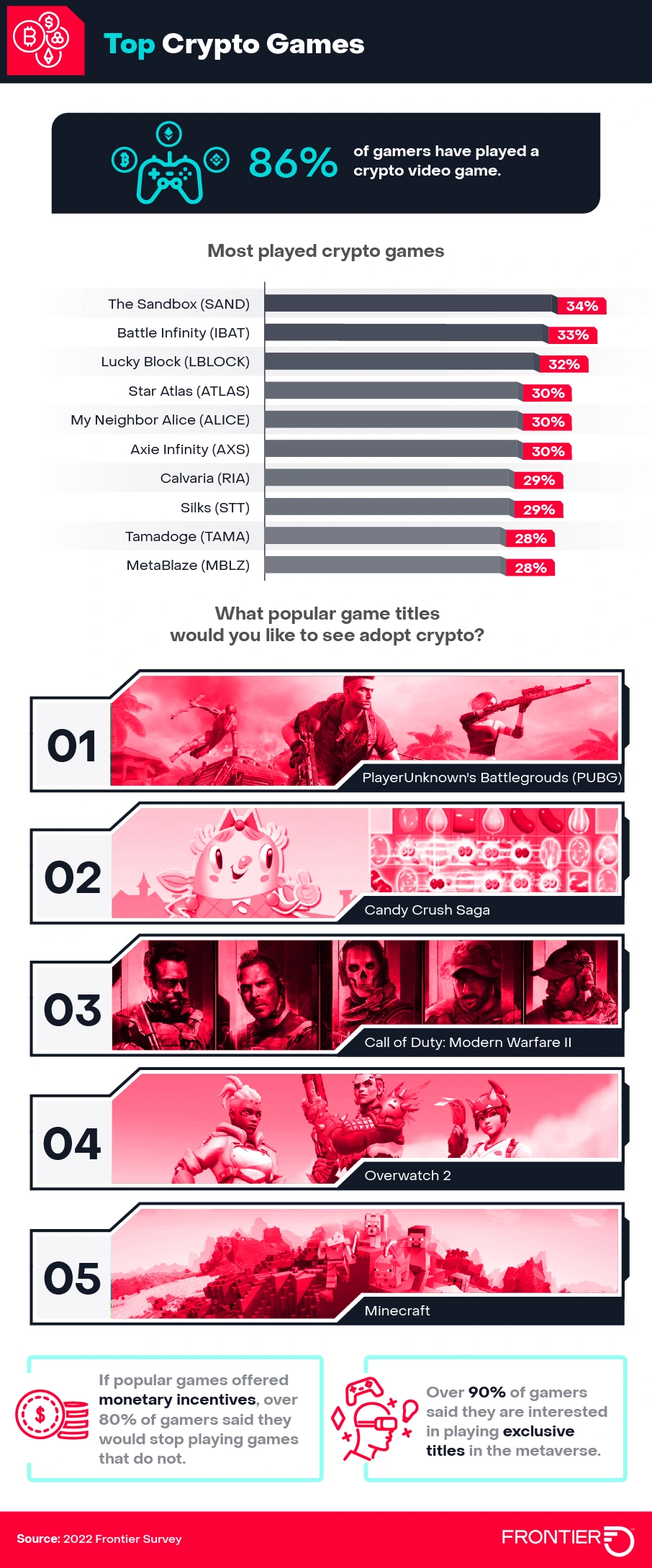Cool Orologi: Timeless Trends
Explore the fascinating world of watches and timepieces.
Game On: How Cryptocurrency is Leveling Up the Gaming World
Discover how cryptocurrency is revolutionizing gaming! Uncover its impact on gameplay, ownership, and the future of virtual worlds. Game on!
Exploring the Intersection of Gaming and Cryptocurrency: A New Frontier
The realm of gaming has seen a revolutionary shift with the integration of cryptocurrency. This intersection allows players not only to engage in immersive virtual worlds but also to earn and trade digital assets that carry real-world value. Games that utilize blockchain technology enable players to own their in-game assets, such as weapons, skins, and characters, providing a novel economic model that empowers users. With the rise of play-to-earn (P2E) games, participants can generate income through gameplay, blurring the lines between leisure and financial investment.
As we explore this new frontier, it's essential to consider the implications of cryptocurrency in the gaming sector. Developers are leveraging decentralized finance (DeFi) to create innovative experiences that attract a broader audience. However, challenges remain, such as regulatory scrutiny and volatility in the crypto market that may impact user experience and trust. As the gaming industry embraces these changes, we can anticipate a future where players not only compete for high scores but also for crypto rewards, transforming the landscape of digital entertainment.

Counter-Strike is a popular first-person shooter game that has captivated gamers for decades. Players can engage in intense matches, working as teams to complete objectives or eliminate opponents. If you're looking to enhance your gaming experience, consider checking out a duelbits promo code, which can provide bonuses for in-game purchases.
How NFTs Are Transforming In-Game Economies and Player Ownership
NFTs, or non-fungible tokens, are rapidly transforming the landscape of in-game economies by introducing true ownership of digital assets. Unlike traditional in-game items that are typically confined within a game's ecosystem and subject to the whims of developers, NFTs empower players by allowing them to buy, sell, and trade their assets in an open marketplace. This shift not only enhances player engagement but also fosters a more dynamic economy where the rarity and value of digital items can fluctuate based on player demand and market trends.
Furthermore, the integration of NFTs in gaming promotes player autonomy and encourages a sense of community. Players can truly own their in-game assets—be it skins, weapons, or virtual land—and have the freedom to transfer these assets across different games or platforms. This creates a new layer of value for players, as they can invest in items that may appreciate over time. As gaming continues to evolve, the adoption of NFTs will likely redefine how players interact with virtual worlds, paving the way for more immersive and rewarding gaming experiences.
What You Need to Know About Play-to-Earn Models in Gaming Today
The play-to-earn model has revolutionized the gaming industry by allowing players to earn real-world rewards through their in-game actions. Unlike traditional gaming, where players invest time and money without any return, play-to-earn games offer cryptocurrency or non-fungible tokens (NFTs) as rewards. This paradigm shift is not just a passing trend; it reflects a growing demand for decentralized gaming experiences that value player contributions. Understanding the dynamics of these models is essential for gamers and developers alike, as they represent new opportunities for engagement and monetization in the digital economy.
To fully grasp the implications of play-to-earn models, consider the following aspects:
- Accessibility: These games can often be played on various devices, making them accessible to a broader audience.
- Community Building: Players are incentivized to form communities, boosting player retention and collaboration.
- Investment Opportunities: Players can invest in in-game assets that may appreciate, further intertwining gaming with economic growth.